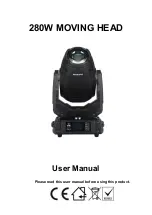
52
GB
- Before you clean the ejector
opening or unblock or unclog
the implement
- When the implement is not
being used
- During all maintenance and
cleaning work
- When the power cable is
damaged or has become
tangled
- When the implement hits
an obstruction during work
or when unusual vibrations
arise. Establish the cause
and see if the implement has
been damaged. Do not repair
it yourself! Have the imple
-
ment repaired by an author-
ised workshop!
•
Store the implement in a dry
place well out of reach of
children.
CAUTION! The following
states how to avoid damage
to the implement and any re-
sulting harm to people:
Take care of your implement:
• Switch off the power when
the implement is to be carried
across steps.
• Inspect the implement each
time before it is to be used.
Never operate the implement
if safety devices (e.g. impact
protector, parts of the cutting
facility or bolts are missing,
worn out or damaged. Check
especially the power cable and
starting lever for damage. To
avoid imbalance, all tools and
bolts must be exchanged as
complete sets.
• Only use spare parts and ac-
cessories that have been sup-
plied or recommended by the
manufacturer. The use of alien
parts results in the immediate
loss of all guarantee claims.
• Ensure that all nuts, bolts and
screws are firmly tightened and
that the implement is in a safe
working state.
• Never try to repair the imple-
ment yourself, other than you
have been trained accordingly.
All work that has not been list-
ed in these Instructions must
only be carried out by author-
ised servicing agencies.
• Treat the implement with the
greatest care. Always keep the
tool clean for better and safer
work. Follow the maintenance
instructions.
• Never overload the implement.
Always work within the speci-
fied capacity range. Do not use
low-power machines for heavy-
duty work. Do not operate the
implement for purposes for
which it is not intended.
Electrical safety:
CAUTION! The following
states how to avoid ac-
cidents and injuries due to
electric shock:
• Before each use, carry out a
visual inspection of the power
and extension cables for signs
of damage or ageing.
Damaged
mains power cables increase
the risk of electric shock.
















































